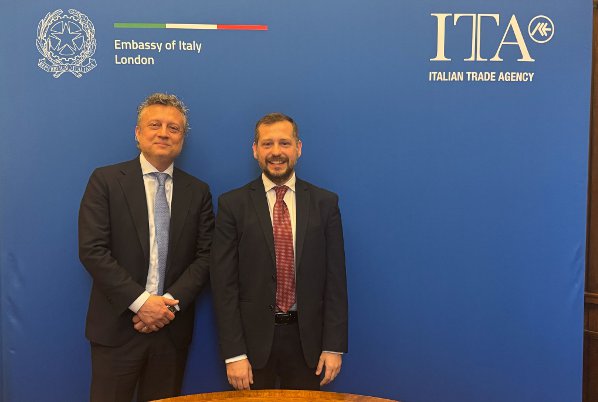.png) Agenzia Italiana del Farmaco
Agenzia Italiana del Farmaco
Message of the Minister of Health Orazio Schillaci to AIFA - Message of the Minister of Health Orazio Schillaci to AIFA
Message of the Minister of Health Orazio Schillaci to AIFA

AIFA, which is a fundamental pillar of Italian public health, has recently taken an important step, with a structural reform that has been awaited for twenty years, designed to make its work more efficient and to respond to the increasingly complex challenges of medicine and pharmaceuticals.
The Agency’s new internal organisation significantly simplified the structure, eliminating the two separate Committees that in the past dealt, on the one hand, with prices and reimbursements and, on the other hand, with the placing on the market of new medicines. In their place, today we find a single Scientific and Economic Committee, designed to shorten the approval time of dossiers and speed up access to pharmaceutical innovation for patients.
The first results of the reform are already tangible. AIFA has informed us that 158 pending procedures inherited from previous management have been processed, as well as a further 133 relating to the admission of medicines to reimbursement. Moreover, the deadlines for submission and approval of dossiers have been reduced by 40%. At the same time, the number of renegotiation procedures for medicines already reimbursed was increased by 85%, a crucial step in ensuring the economic sustainability of the national health system.
The new organisation also provides for the introduction of a President, who is the Agency’s legal representative and chairs a renewed Board of Directors. This is complemented by two directors responsible respectively for the technical-scientific and administrative areas, a division that makes AIFA more agile to manage and more ready to respond to the challenges of the current context.
A further contribution to the efficiency of the Agency will come with the internal reorganisation, recently approved by the AIFA Board of Directors. This reorganisation aims to define more clearly the roles of both the top management and all the various components of the Agency, allowing for even more coordinated and effective work. This measure is also aimed at ensuring faster access to treatment for patients, while maintaining a strong focus on the economic sustainability of the system.
Pharmaceutical innovation is perhaps one of the biggest challenges facing our health. Research is running fast, but the costs risk becoming unsustainable if we are not able to reward innovation that offers real added value from a therapeutic point of view. It is therefore crucial to measure the costs to the actual value of the new drugs, avoiding that resources are dispersed.
The Italian Medicines Agency faces several key challenges to ensure fair and sustainable access to medicines for Italian citizens. One of these is equal access to treatment throughout Italy. Regional differences in access to medicines can be amplified, so policies promoting fair access to essential and innovative medicines need to be promoted.
With the increasing cost of medicines, AIFA will then be increasingly required to take measures to curb public pharmaceutical expenditure without compromising the quality of care. This implies the use of equivalent and biosimilar medicines, price negotiation and renegotiation of contracts to ensure economic viability.
Decision-making processes for the reimbursement of medicines will also need to be timely and adapted to changes in the healthcare framework. AIFA needs to update and streamline these processes to adapt to new needs and respond to emerging therapeutic innovations.
Managing the many stakeholders (pharmaceutical manufacturers, patients, doctors, scientific societies, etc.) requires continuous dialogue and alignment of objectives. This involves fostering collaboration with all parties involved to ensure informed and inclusive decisions.
Finally, the challenge of transparency and communication: ensuring transparency in decision-making processes and communicating the rationale behind the Agency’s choices is key to maintaining public trust. Effective communication can help explain the criteria used for drug approval and resource management.
Addressing these challenges requires competent and flexible management, constructive dialogue between all parties involved and ongoing efforts to improve the effectiveness of the Italian pharmaceutical system.
These are crucial commitments that require maximum cohesion and responsibility from all those who work in this Agency, which is perhaps the most important public agency in our country. Indeed, AIFA’s decisions affect a market worth around €50 billion, if we also include exports, and this has a direct and significant impact on citizens’ lives.
However, given the challenges that lie ahead, the first brilliant results achieved allow us to say that the reform of the Agency and the structural changes that have just begun are a tangible example of how it is possible to innovate the institutions to improve the services offered to citizens, while at the same time containing public expenditure. I thank all of you for your efforts in this phase of change and I am sure that the work we are doing together will bring real benefits for all Italians.
The Minister of Health
Orazio Schillaci
Published on: 18 December 2024

